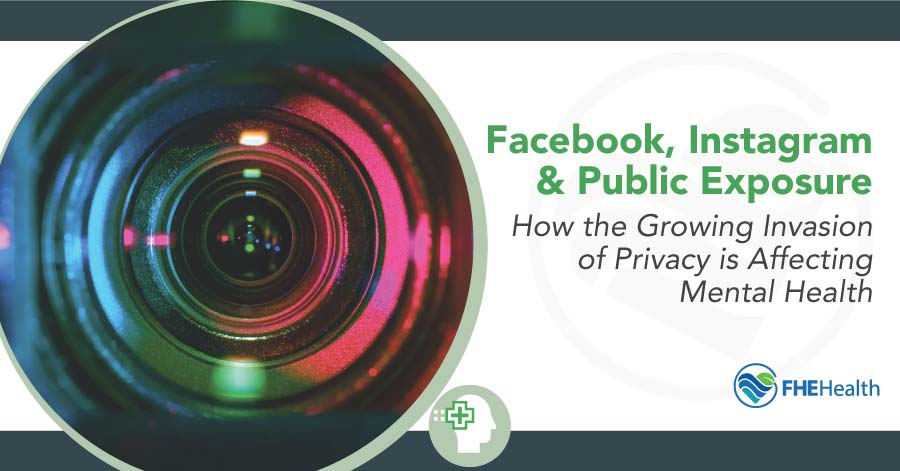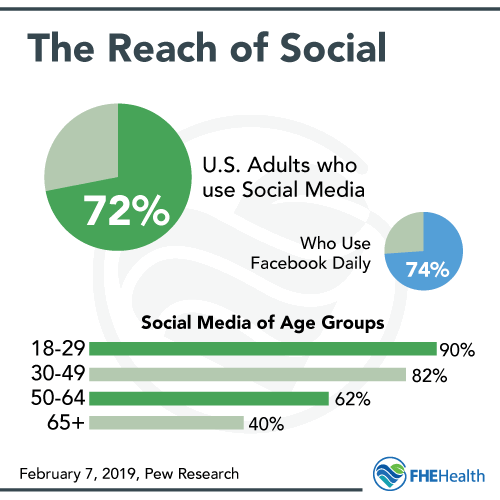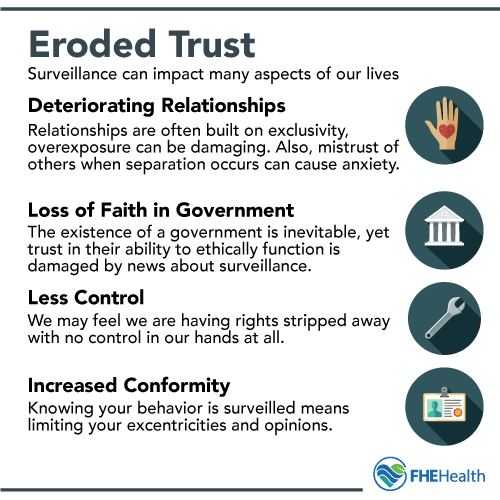
Updated 10/15/24
In today’s world, people face mass surveillance in more ways than ever before. A walk through cities with extensive monitoring systems can mean being captured on camera hundreds of times in a single day without being aware of it.
In addition, popular social media companies expose their users’ lives to the public in various ways. The data collected and shared on these platforms is often deeply personal. Like many other technologies, social media sites do have benefits, but it’s important to consider their impact on privacy and what effect this may have on mental health.
Mass Surveillance Puts Our Lives on Display
 For many people, social media has become a staple of daily life. When around 7 in 10 adults in the United States use social media, imagining life without it seems difficult. People enjoy using these digital platforms to connect with friends and family, share information, keep up with the latest news and find sources of entertainment.
For many people, social media has become a staple of daily life. When around 7 in 10 adults in the United States use social media, imagining life without it seems difficult. People enjoy using these digital platforms to connect with friends and family, share information, keep up with the latest news and find sources of entertainment.
Well-known social networking sites like Facebook and Instagram collect enormous amounts of information, and they’re continuously seeking new ways to engage their users despite being plenty popular already — 69% of adults have an active Facebook account, and 37% have an account with Instagram, which is owned by Facebook. Most users on both platforms report daily or high-frequency use.
Public exposure is becoming increasingly common outside the digital world, too. Cities like New York, Chicago and Los Angeles employ mass surveillance via closed-circuit television (CCTV) systems that capture people’s activities and faces. Advances in audio recording and facial recognition technology make these installments extremely invasive.
Concerns about loss of privacy are sometimes set aside, with people focusing on the benefits of these powerful modern technologies. Social media promises to create connections at any distance, give a strong voice to the average person and spread information instantly. CCTV systems promise safety and security by constantly monitoring criminal activity.
However, the potential risk for abuse shouldn’t be ignored, and neither should the psychological effects of living under constant surveillance.
Anxiety in a Surveillance State
There’s a clear distinction between anxiety as a typical human emotion and anxiety as a mental disorder. But mass surveillance blurs this line. Worries that previously would have been outside the normal bounds of emotion are now very realistic concerns. And the more entrenched the technology becomes, the blurrier the line gets.
Being constantly watched makes it normal to worry about if your humor is too dark, your political stances too radical, your private web searches too controversial and your personality too out there. The old bounds of behavior shrink, and that leaves many more people with anxiety who are less sure if their worries are real or all in their heads.
Invasion of Privacy, Identity and Freedom of Self-Expression
 It’s easy to look back in shock at the stealthy tracking of famous figures like Martin Luther King Jr. and Ernest Hemingway, but even the average person nowadays has more data collected than ever possible back then. Mass surveillance has become so normalized that even when people show concern about who gets their data, many are unable to change their habits.
It’s easy to look back in shock at the stealthy tracking of famous figures like Martin Luther King Jr. and Ernest Hemingway, but even the average person nowadays has more data collected than ever possible back then. Mass surveillance has become so normalized that even when people show concern about who gets their data, many are unable to change their habits.
The most significant impact on mental health of this loss of privacy is the eroded trust in others. It can be distrust of friends, family, the government and possibly even yourself, and avoiding it isn’t so easy when everyone else is under surveillance as well. Eroding trust lays the groundwork for various other effects on an individual’s life.
Deteriorating Relationships
Every personal relationship can become a risk when under heavy surveillance. Whether through social media monitoring or street cameras, people who are being watched always have to worry about how they are perceived, making it difficult to have genuine interactions with others.
Limited contexts, such as when two people share an inside joke, are no longer confined to just two people, and whoever’s watching or listening may have a different interpretation (or misinterpretation) of the situation.
Loss of Faith in Government
Considering the majority of people are opposed to the government spying on its own citizens, decreased trust in government is a direct consequence of mass surveillance. People may be OK with suspected terrorists having calls tapped, faces tracked and purchases logged, but the potential to be treated as an enemy of the state doesn’t sit so well.
It defines a clear crisis of faith: How can the public trust the government if the government doesn’t trust the public?
Less Control
Having a sense of control of your private life is a key benefit. Reductions in that control can only lead to increased stress levels. People under watch can’t afford the types of slip-ups that are unimportant in a private sphere, especially if those mistakes going public would have dire consequences. You can’t be sure who’s watching and willing to report you.
Recall that most adults have social media accounts, and they use them for all sorts of reasons that make disconnecting troublesome or undesirable. It’s no wonder an increasing number of users are setting their accounts to private. Unfortunately, employers can often gain access to this private information in other ways.
Increased Conformity
Perhaps the most damaging effect of all, the level of uncertainty living under surveillance encourages people to conform. People being watched self-censor; it becomes too risky to express controversial opinions when it’s not clear if you’ll be branded a potential criminal (or worse). Overall, people alter their behaviors so they are not highly offensive to the watcher, which restricts freedom of self-expression and can feed into the previously mentioned issues.
Remaining Level-Headed
Due to the popularity of social networking sites, CCTV, camera-equipped drones and other technologies, completely avoiding surveillance is nearly impossible. However, you can take steps to safeguard your mental health if you find it contributes to anxiety.
Here are some useful tips:
- Limit time spent on social media.
- Review your privacy settings on all social networking apps.
- Disable or limit internet-connected household technology/smart technology.
- Form stronger bonds outside of social media, if possible.
- Ask a trusted friend to travel with you in public places.
- Learn who has the right to request your personal information.
- Monitor your emotions for any changes such as heightened paranoia, uneasiness or fear.
Restoring some privacy to your life can give you greater peace of mind, but it may not be enough. If you’re still unable to cope with your anxiety, please seek professional medical help.
At FHE Health, we’re committed to providing the right combination of treatments to improve your quality of life. Contact us today to learn more about how we can assist you in overcoming your anxiety disorder anxiety disorder.






